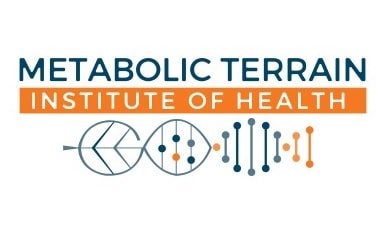Your internal terrain—similar to a garden—can be either more hospitable or less hospitable to cancer. Things like high blood sugar or chronic inflammation provide conditions for cancer to thrive. Bring them into balance, and the cancer may be deprived of what it needs to grow and spread.
What is body terrain?
Your body terrain is the state of your inner environment. You can think of your terrain as your garden. Just like the quality of soil in a garden influences plant growth, your inner body terrain influences cell and organ function and overall health. Each one of us has a unique body terrain or inner garden that is affected by factors like nutrition, hormone balance, metabolism, body weight, inflammation, and more.
A healthy terrain reduces the likelihood of imbalances or diseases, including cancer, which can be seen as an unwanted “weed” in your terrain. When you build a healthy body terrain, you deny the cancerous “weed” the environment that allows it to thrive. You also simultaneously promote health and wellness throughout your body.
By itself, optimizing your body terrain is not enough to control or cure cancer. But it’s an important complement to conventional treatments, extending their benefits by reducing your risk of recurrence and improving your overall health.
How does body terrain influence cancer?
Your body terrain can directly affect the noncancerous cells and tissues interacting with your tumor, called your tumor microenvironment. The cells, normal and cancerous, in the entire tumor microenvironment play a role in cancer’s development, spread, and response to treatment. “Tumor cells themselves alter the microenvironment to secrete things that help tumors grow.”1Joe Gray, PhD, quoted in Gibbs A. Area surrounding a tumor impacts how breast cancer cells grow. Oregon Health & Science University. March 14, 2018. Viewed April 30, 2018.
Also, within an imbalanced body terrain, cancer-promoter genes are turned on, while cell repair and cancer-suppressor genes are switched off. This altered—and dysfunctional—gene expression changes cell behavior, causing cancer cells to divide too quickly and spread into the surrounding tissue.2Alschuler LN, Gazella KA. The Definitive Guide to Thriving after Cancer. Berkeley, California: Ten Speed Press. 2013. p. 10. Bringing your terrain into balance can turn cancer-promoting genes off and turn cancer-suppressing genes on.
Keep the cancer at bay
Cancer treatments, even when successful, often fail to prevent recurrence. As a result, even if the original malignancy is gone, the remaining biological imbalance creates an environment for cancer to recur. Also, cancer treatment itself often leads to an imbalanced terrain, requiring additional effort to restore balance after treatment. Gardeners know that simply removing a weed will not keep your garden patch weed-free for long. You need to tend your soil continuously.
CancerChoices Senior Clinical Consultant Laura Pole, RN, MSN, OCNS, explains the importance of tending your terrain and tumor microenvironment.
Play videoBody terrain factors related to cancer risk or survival
Changes in one terrain factor can interact with other factors. For example, weight loss when one is overweight can lead to reduced blood sugar imbalance, less inflammation, better immune function, less oxidative stress, and a healthier microbiome.
Bleeding and coagulation imbalance
Coagulation is the process by which blood clots or thickens. Cancer treatments can cause blood clotting, and too much clotting can impair blood flow, while too little clotting can permit harmful bleeding. Clots are associated with worse survival outcomes.3Okello, C. D., Mulumba, Y., Omoding, A., Ddungu, H., & Orem, J. (2021). Survival of patients with cancer associated thrombosis at the Uganda Cancer Institute. Ecancermedicalscience, 15, 1212. Excessive coagulation can also support the growth and spread of cancer cells and promote the growth of blood vessels that feed tumors.4Bauer, A. T., Gorzelanny, C., Gebhardt, C., Pantel, K., & Schneider, S. W. (2022). Interplay between coagulation and inflammation in cancer: Limitations and therapeutic opportunities. Cancer treatment reviews, 102, 102322.
CancerChoices advisor Keith Block, MD, discusses the importance of optimizing body terrain in order to make the body less hospitable to cancer, using blood coagulation as an example.
Play videoBody weight
Having a healthy body weight is linked to lower risk of many types of cancer, lower risk of high blood sugar and insulin resistance, fewer or less severe side effects and symptoms, and in some cases better survival after diagnosis. See our handbook on Body Weight ›.
High blood sugar and insulin resistance
Chronically high levels of blood sugar and insulin can create conditions that support cancer growth and spread. Cancer cells benefit from high blood sugar and insulin: in addition to fueling their activity and growth, they may help cancer cells resist normal cell death. High blood sugar and insulin resistance can encourage inflammation and oxidative stress, other terrain factors that influence cancer. High blood sugar may also reduce cancer cells’ response to chemotherapy.
Research shows that lifestyle practices like Eating Well and Moving More, and maintaining a healthy body weight, are effective in managing high blood sugar and insulin resistance. Medications can also help. See our handbook on High Blood Sugar and Insulin Resistance › for guidance on therapies and practices you can try in collaboration with your physician.
Hormone imbalance
The relative actions of your hormones influence all your other body systems. The glands and tissues of your endocrine system secrete hormones that regulate body systems and functions, including your heart function, blood pressure, energy production, stress response, wakefulness, blood sugar, reproductive organ development and function, immunity, calcium uptake, and digestion. With hormones, goals for optimizing your body terrain are balance, rhythm, and equilibrium. Some cancer types are sensitive to specific hormones, like breast cancer, which can be addressed with your provider.
Immune function
The immune system is involved in how cancer develops, and many aspects of treatment depend on a working immune system to support treatment effectiveness. Your body’s processes to fight infection, neutralize harmful substances, or prevent diseases (including cancer) from progressing are a key part of your body terrain. Certain cancers have been associated with impaired immune function directly, including cancers of the bladder, kidney, and skin (melanoma). Immune-mediated illnesses such as Crohn’s disease, celiac disease, or asthma can also contribute to the development of cancer, both in the organs they affect such as the colon or lung, as well as distant locations or cancer types. Learn how to improve your immune system health with evidence-based therapies and lifestyle practices in our Immune System Health handbook ›.
Inflammation
Inflammation is the body’s natural response to injury or infection. This process, known as acute inflammation, helps remove damaged tissues and restore balance. However, factors such as the immune system, nervous system, environmental toxins, or hormonal imbalances can cause chronic inflammation. Over time, this persistent inflammation disrupts the body’s ability to heal and regenerate properly, contributing to the development and progression of many diseases, including cancer.
Chronic inflammation drives cancer progression, increases recurrence risk, and suppresses anti-cancer immunity. Inflammation is also strongly linked to other terrain factors like body weight, high blood sugar, and oxidative stress. Learn how to manage inflammation with evidence-based therapies and lifestyle practices in our Inflammation handbook ›.
Oxidative stress
Oxidative stress occurs when there is an imbalance between free radicals and antioxidants in our bodies. Free radicals are unstable molecules and our bodies use antioxidants to neutralize them. During cancer, our body chemistry can change and there may be too many free radicals, leading to oxidative stress. This in turn can fuel inflammation and support the growth or spread of cancer. Oxidative stress can also directly damage the DNA in healthy cells, which increases cancer risk.
Your microbiome
Trillions of microorganisms live in and on you, many of which are in your gut. Your microbiome influences all your body systems, with impacts on the immune system and metabolism, especially significant for the growth and spread of cancer. Imbalances in your microbiome can also trigger inflammation, increase cancer risk, and decrease the effectiveness of certain therapies. See our Microbiome handbook › to learn how to find out if your microbiome is out of balance and explore therapies and lifestyle practices that can help restore balance.
Body terrain: an enduring concept
The concept of body terrain is not new: Many traditional medical systems teach that to heal disease, the underlying constitution must be returned to balance. Traditional Chinese medicine (TCM) has viewed the body terrain as important for millennia. Ayurvedic medicine uses the body’s constitution (prakriti) and life forces and biologic factors (dosha) as foundations for medical care. But this concept is only recently beginning to gain traction in conventional cancer research.5Lemole G, Mehta P, McKee D. After Cancer Care: The Definitive Self-Care Guide to Getting and Staying Well for Patients with Cancer. New York, New York: Rodale, Inc. 2015. Integrative oncology teaches that tending to the body terrain is essential to healing and wellness as well as curing cancer.
How can I improve my body terrain?
Improving your body terrain by itself is not enough to control or cure cancer, but it can help to reduce cancer risk. For the best outcomes, you need conventional treatments, alongside changes in your body terrain, to lower the likelihood of recurrence.
To be most effective in addressing imbalances, we recommend identifying whether you have any imbalances and working to return to balance. A physician or other licensed health professional can test for these imbalances related to cancer. Functional medicine physicians, integrative medicine physicians, and oncology naturopaths are among the health professionals who routinely evaluate some of the less commonly tested imbalances, such as oxidation or microbiome imbalances.
If you find an imbalance, work with a health professional to develop a plan to return to balance, and then retest as needed to check progress and maintain balance.
You can also find practitioners who are trained on appropriate therapies to optimize body terrain as part of an integrative cancer care plan.
Self-care actions you can take
7 Lifestyle Practices
The 7 Lifestyle Practices and some core lifestyle choices are an excellent place to start in optimizing your body terrain. The power of these practices and habits lies mainly in their ability to alter your body terrain to make it less supportive of cancer.
Help and support for making changes

Anticancer Lifestyle Program ›
Using expert videos, animation, text, and interactives, the modules help you make lasting lifestyle changes that will decrease inflammation and enhance your immune system’s ability to fight disease.

CancerChoices Blog: Practical Tips: Foods to Support Your Microbiome during Treatment ›
Complementary therapies
Beyond the conventional medicine approaches that your oncology team recommends, evidence supports the use of many complementary therapies to promote a healthier body terrain. These include mind-body approaches, some supplements and nutrients, therapies that physically manipulate your body, and more. You can search our Supplement and Therapies Database › for therapies that are top-rated for optimizing body terrain.
Learn about how to build balance for specific terrain factors in our individual terrain handbooks:
Helpful links
- Dr. Keith Block: Life over Cancer: The Block Center Program for Integrative Cancer Treatment, explores terrain imbalances and how to partner with your physician to find and manage these imbalances
- Nasha Winters’ book The Metabolic Approach to Cancer: Integrating Deep Nutrition, the Ketogenic Diet, and Nontoxic Bio-Individualized Therapies
- You can also explore The Definitive Guide to Cancer, 3rd Edition by Lise Alschuler, ND, FABNO, and Karolyn Gazella, which provides in-depth information on four body terrain factors: immune function, inflammation, hormone imbalance, and blood sugar imbalance and insulin resistance.
If you’re a health professional, see our page on body terrain for professionals ›
Learn more
References



